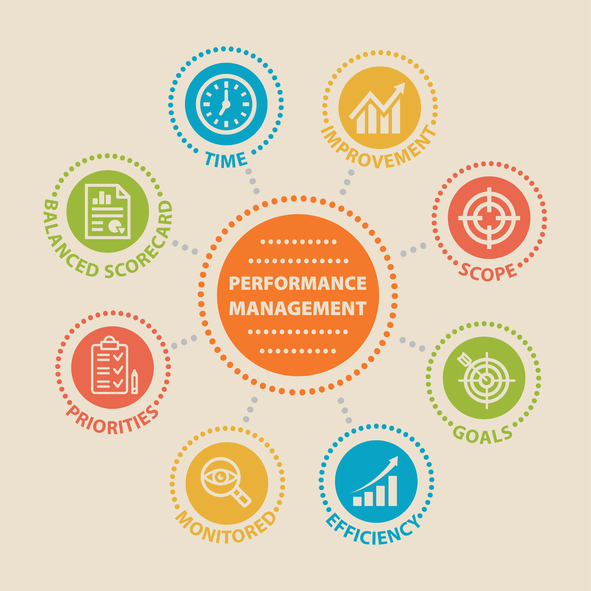2015 – The Year of Performance Management?

Now that all the Year in Review and Year in Pictures articles have concluded, it’s time to move on to the predictions for the coming year. I’m by no means an “official” prognosticator. Yet I see a trend that has been building over the last several months – a renewed emphasis on performance management in relation to talent management and people management – that leads me to believe that 2015 might be the year of performance management.
Now, that might seem an odd pick, given that there is so much talk about talent analytics, integrated talent management, and now people management, with an emphasis on employee engagement and empowerment. But I don’t mean any of those topics are not growing in importance and interest from HR leaders and professionals – they are, and they are the future of human capital management.
Performance Management is a central component
I see performance management as a central component of the major HR trends. They all have a critical bidirectional flow with the performance management element. As organizations delve into talent analytics and more integrated talent management pillars such as talent acquisition, onboarding, succession planning and learning and development, they begin to understand that performance management is a key to all talent management components.
In addition, even as organizations understand that the future is in talent analytics, integrated talent management and more, the reality is often more realistic. If you are going to walk before you run, performance management is a great companion for that stroll into better overall talent management.
Even as industry analyst and expert Josh Bersin begins to move away from the word “talent” and suggest we might consider “people” and all that word encompasses, I believe so much of it still goes back to performance management. As Josh writes, “whether you are a leader, manager, or HR professional, we need our organizations to succeed.”
True – and organizations need to get their arms around their employees’ performance.
“People Management” comes back to performance
Even as the conversation is extended beyond integrated talent management to better employee engagement, empowerment and people management, almost all ties back to how employees are performing. If performance can be improved, through whatever means, then HR will be well served by leading the organization in figuring out how to do that. HR can show the way for hiring managers and other leaders.

HR will be in a position to provide more insight, answer more questions and ask more probing questions, such as:
- What is the relationship to employee engagement and performance?
- What insight does employee engagement data provide for retention?
- How should top performers be positioned in the organization’s succession planning?
- Do the organization’s employee assessments lead to anticipated performance?
- Which, if any, onboarding processes help new employees begin performing at a high level more quickly?
- Does more empowerment lead to improved performance?
- Which teams are better performers and why? Is it more tied to the manager or the employees skills, engagement or aptitude.
The list of questions is virtually limitless, as is the insight to be gleaned.
As Josh indicates, “talent management” is not dead and “the concepts and principles are not going away. But as an area of focus, we in HR have to think more broadly.” He goes on to say that “talent management is now people management and it has to take on a much broader perspective and holistic approach.”
True.
And so much of “people management” comes down to employee performance and performance management.
Performance management a stepping stone
While the Holy Grail for HR may be shifting from “integrated talent management” to a more sweeping “people management,” for many organizations dealing on a more manageable and gradual approach to their ultimate goals, the focus might be best assigned to employee performance.
For some, that might make 2015 the Year of Performance Management.
Follow Joe Abusamra on Twitter - @JoeAbusamra
Follow Acendre on Twitter - @AcendreTalent
Back To List